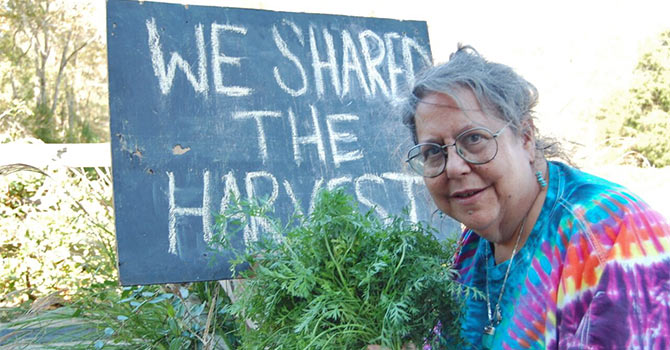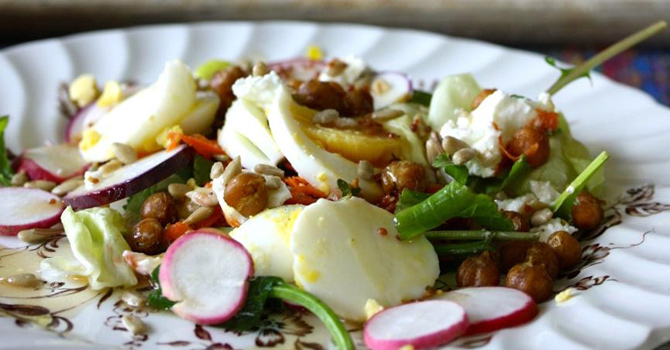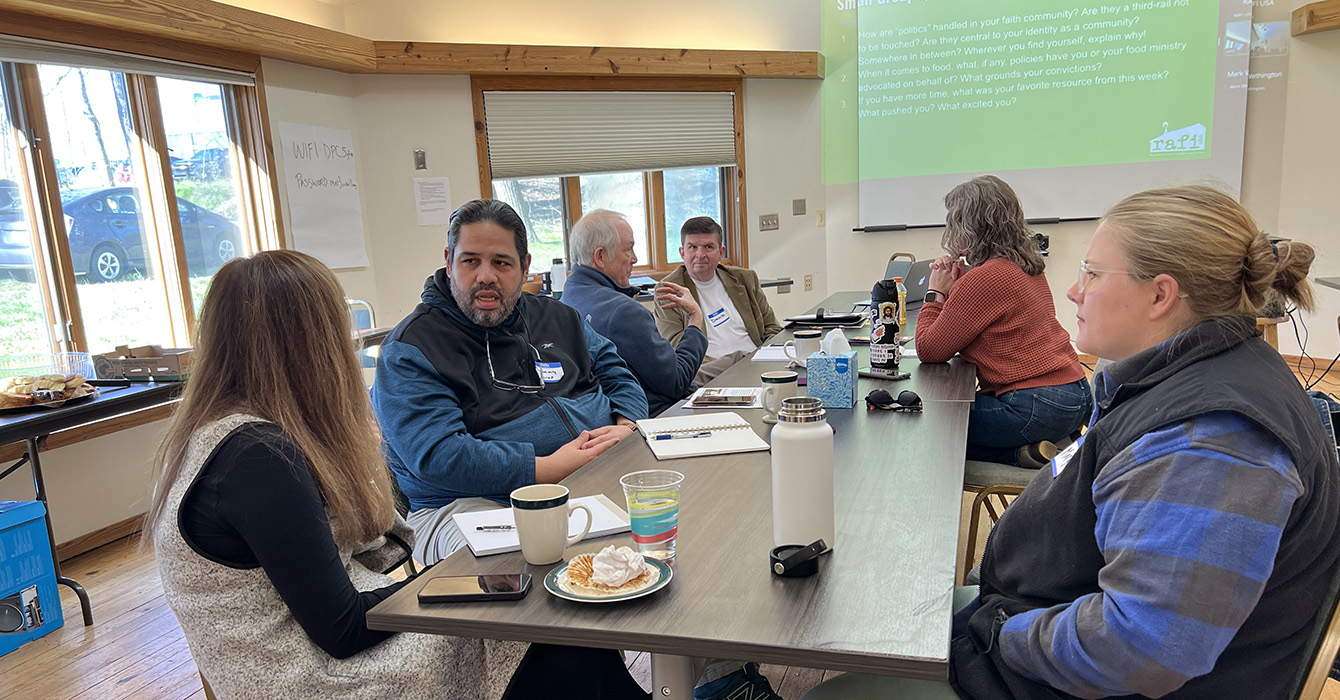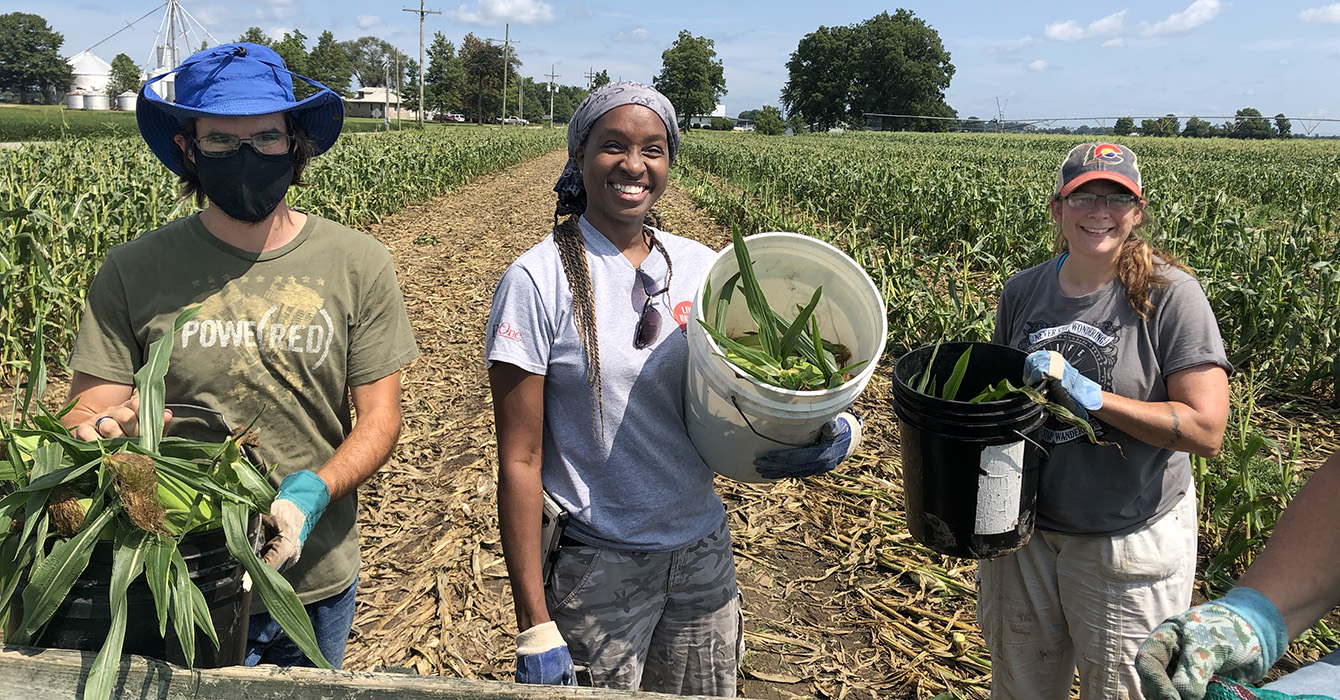Late last summer, I got a call from a colleague: Jocelyn Patterson, my friend and a longtime member of Anathoth Community Garden & Farm, had died.
Jocelyn died alone in her house, and she lay there for a couple of days before someone barged in to find her.
Her death was terribly sad. It also challenged me to consider the complexities and even failures of our mission at Anathoth, where I’ve served as director for six years.
Of the many characters that have animated this ministry, Jocelyn was one of the most consistent and colorful. She was a self-described hippie who dressed in tie-dye and turquoise jewelry, a Jewish woman from New Jersey who first settled in Cedar Grove in the ’70s to live in a commune after touring with the Grateful Dead.
But obesity plagued Jocelyn’s health and limited her mobility. She relied on a network of friends for help doing things, from installing a shower curtain to getting to the local health clinic.
Jocelyn’s death has complicated my understanding of who we are at Anathoth. The latest in a string of deaths, it has forced me to confront the fact that the story -- our story -- is not so neat and tidy as we’d like to think.
Our identity at Anathoth hinges on a narrative of life triumphing over death, peace in response to violence.
In part, this is because the ministry was born out of death. In 2004, Bill King, a white man married to an African-American woman, was murdered at a corner grocery store. Some speculated that the murder was racially motivated.
The community held a prayer vigil in response to King’s death, and out of this gesture came a vision to plant a garden where neighbors could heal divisions of race and class while working collaboratively to heal the earth.
And yet so heavily has our story relied on the linearity of life after death that it has been hard for me to make sense of the subsequent deaths the community has experienced during my tenure as Anathoth’s director.
Phillip Johnson and Skip Wade were murdered at the same corner store in 2012, eight years after King’s death. One of our founding carpenters, Peter Kramer, died of cancer in 2014. And just a year ago, Raekwon Webb, one of our teen interns, died after being struck by a car while walking along the road with a friend.
I felt a strong temptation to push these subsequent stories of death to the margins, to obscure or even ignore them. Let’s talk about how we are solving the problem of death. Let’s keep death at the beginning, not at the center. This sanitized narrative is easier to wrap my head around and explain to others.
As it relates to Jocelyn’s story, there is a bitter irony that while Anathoth claims the possibility of eating as something healing and restorative, it was eating that imperiled and eventually killed Jocelyn. The truth is that we were not able to save her.
But also, her death has helped me realize that the ministry of caring for creation and healing divisions between neighbors requires communion between the living and the dead.
Perhaps Anathoth is a place to “re-member” those like Raekwon, Peter and Jocelyn with those who are living.
The Apostles’ Creed speaks of a communion between the living and the dead, a communio sanctorum. But often, Christian leaders struggle to foster this communion, because modern life is so fragmented. When we are constantly on the move, we orient ourselves away from what has passed and toward what is new. What memory we do carry forward lacks grounding in ritual or place.
Sentiments like “she was a good person” or “I will miss her laugh” pay tribute to sugar-coated personal qualities rather than how someone might truly have changed our way of life together. Clichés like “she is in a better place” rely on a negative view of our world, suggesting that it is something from which to escape, perhaps to a more ethereal heaven.
Our obsession with the gadgetry of newness also distracts us from the more mundane aspects of Christian discipleship, like caring for the vulnerable, the Jocelyns, in our midst.
Communio sanctorum requires a more “placed” memory of those who have come before us. Like the stream’s current that shapes the stone in its bed over many seasons, a placed memory provides provides for us the steady, molding force of tradition. This is how we do things, because this is how those who have come before us taught us to live in this place. Our way of life together changes gradually, in accordance with our particular needs and nuances.
It is through this communio sanctorum that I believe Jocelyn is remembered at Anathoth. It happens when we form a circle around the potluck table on Saturday afternoons to accommodate those who need to sit. Or when we serve those who can’t make it through the potluck line on their own. Or when we bag produce instead of box it for those who need to use one hand to balance.
Or, on a broader scale, when we ensure through our HarvestShare program that for every one household who can afford a share of good food, there is another to whom it is given.
Through these acts of love and care, we remember how Jocelyn has changed the way we live together -- and in doing so, we bring her back into communion with us.















